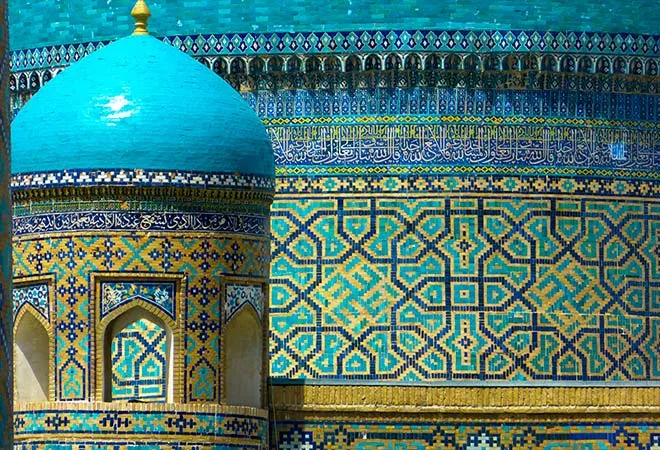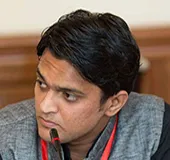
On 16 November 2018, nearly three decades after it was first conceived in the 1970s, Tajikistan President Emomali Rahmonov set the first turbine of the Rogun hydroelectric power plant in motion at a historic ceremony attended by thousands. Following the disintegration of the Soviet Union, the Tajik power plant remained one of the most significant stumbling blocks in its bilateral relations with the lower riparian state, Uzbekistan. This project represented the decades of trust deficit among the Central Asian states marked by border disputes, ethnic problems and disputes over control of natural resources. Hence, the beginning of the first of the six planned turbines of the Rogun plant is a welcome development — not only for the region, but also for India that hopes to enhance its engagement with the region.
Sensing the winds of change in Central Asia, India decided to step up its engagement with the region by organising for the first time India-Central Asia Dialogue at the Foreign Ministers’ level. While the platform is not new and has been in existence since its launch by India’s Minister of State for External Affairs, E. Ahamed in Bishkek in 2012, it was for the first time that Foreign Ministers of all the five Central Asian countries participated in an India led-initiative, along with the Foreign Minister of Afghanistan. Scholars and observers of Central Asia would agree that such a scenario would have seemed far-fetched just a few years ago, given strained relations among the Central Asian states.
India’s engagement with the region has evolved over the period of two decades. In the initial years, India relied on rekindling old civilisational links with the region that laid the groundwork for building trust and goodwill. This was followed by a policy of projecting India’s ‘soft power.’
India’s engagement with the region has evolved over the period of two decades. In the initial years, India relied on rekindling old civilisational links with the region that laid the groundwork for building trust and goodwill. This was followed by a policy of projecting India’s ‘soft power’ wherein India provided assistance in capacity building, human resource development, information technology, pharmaceuticals and healthcare, etc. The idea was to ensure goodwill and project India’s sincerity in its engagement with the region with the intention of augmenting its trade ties. However, lack of a focused approach towards the region, coupled with strained relations among the Central Asian states inhibited the economic potential of ties between the two sides. It is from this perspective that the recent-concluded India-Central Asia Dialogue must be perceived.
The event was important for India’s policy towards the region from two perspectives.
- India’s Central Asia policy has reached the next stage wherein the approach is now focused on enhancing ties through institutionalising the relationship. India’s External Affairs Minister proposed setting up of India-Central Asia Business Council and the India-Central Asia Development Group to further deepen the engagement and serve as a platform for devising concrete proposals.
- By inviting Afghanistan, India has also linked its Central Asia policy with Afghanistan and vise versa. It hopes to rope in Central Asian states in the socio-economic development and political stability of Afghanistan that would lead to improved connectivity and regional integration that the Indian government hopes to benefit from. Afghanistan and Central Asia are thus inextricably linked towards each other from the perspective of India’s engagement with both the entities.
India’s renewed push for engagement with Central Asia comes at a very opportune moment when the prospects of regional integration seem more possible than ever before. The change of guard in Uzbekistan following the death of the former President Islam Karimov has ushered an era of vibrant political atmosphere in the region, led by the current President Shavkat Mirziyoyev. Since his ascent to the post in 2016, the Uzbek President has focused on resolving the country’s vexing issues with its neighbours under a ‘zero problems’ policy. This renewed approach has already reflected in several joint projects announced in the last two years. Analogous to the European Schengen visa, Kazakhstan proposed ‘Silk Visa’ project that would allow tourists to visit Central Asian countries with a single visa. While the proposal was first made to Uzbekistan, Kyrgyzstan and Tajikistan have also expressed their interest.
By inviting Afghanistan, India has also linked its Central Asia policy with Afghanistan and vise versa.
Kazakhstan President Nursultan Nazarbayev also proposed the creation of an economic zone, a dry port, along the borders with Uzbekistan, akin to the ‘Khorgos Center’ with China. Uzbekistan and Tajikistan have also agreed to open 10 border crossings, thus ending years of hostile relations dominated by border disputes.
Turkmenistan has also made its outreach to Uzbekistan when it inaugurated the construction of 600-km Ashgabat-Turkmenabad highway on 11 January 2019. The highway connects the Turkmenistan’s capital city to its border with Uzbekistan. The project is part of the Turkmenistan’s economic diversification policy amid increasing dependency of revenues through gas exports by utilising its geo-economic potential. It also allows landlocked Uzbekistan, a major exporter of metals and agricultural commodities, an access to the Caspian shores. The other section of the highway connecting Ashgabat to the Caspian shores is due to be completed by 2020. All these projects and initiatives are a testimony to an atmosphere of trust that has evolved over the past two years.
Hence the time is ripe for India to deepen its engagement with Central Asia when the relations among the Central Asian states seem to be augmenting to levels never seen before. A politically, geographically and economically integrated Central Asia is important for India to achieve its goal of ‘connecting’ with the region. It also provides an opportunity to invest in several hydro-electric power projects and other such ventures that cannot be implemented without the cooperation of two regional states. The Rogun power plant itself was a classic example of a stalled project that required cooperation between Tajikistan and Uzbekistan due to shared rivers. While some measures to enhance political and geographical integration have begun and would continue to broaden, economic integration may follow, if the fruits of the former continue to reap sustainable benefits for everyone. India must hence provide a platform for the regional states to discuss issues related to connectivity, transportation and logistics among themselves. While India has proposed to set up institutions for governments and businesses to interact within the format of India-Central Asia Dialogue, it must also actively support initiatives that resolve economic and connectivity issues among them. To begin with, India can help organise, support and provide its expertise to the establishment of Regional Transportation Council of the Central Asian states proposed by the Uzbek President. The proposed council would serve as a platform to resolve transportation and logistical problems. Kazakhstan also recently proposed the creation of a consortium that would connect the railway networks of Kazakhstan, Turkmenistan and Iran to the Chabahar port and thus enable transportation of goods from Central Asia to India. Thus, there is a political will and initiative from the Central Asian states to significantly diversify their engagement with India as well as heed to its call for regional integration. India must seize the opportunity in order to stretch its economic borders at its northern front.
The views expressed above belong to the author(s). ORF research and analyses now available on Telegram! Click here to access our curated content — blogs, longforms and interviews.




 PREV
PREV


